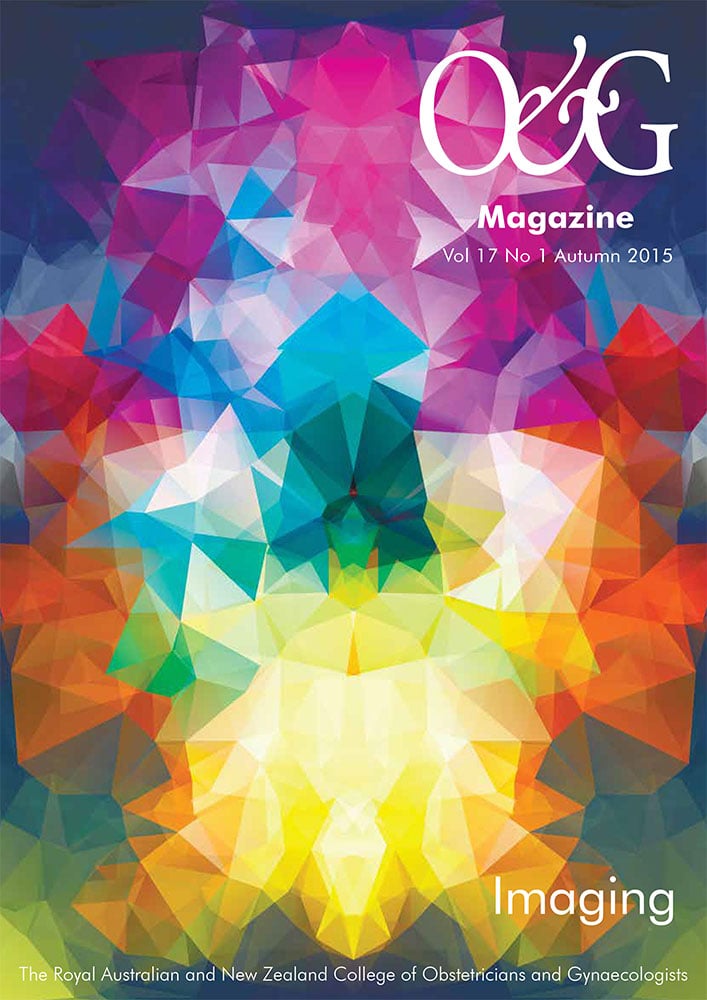Considerable focus is now being placed on the Joint RCOG/RANZCOG Event in Brisbane, 12–15 April 2015. Excellent scientific and social programs are seeing advance registrations breaking all previous RANZCOG records. This will be a memorable event and I encourage all College members to make every effort to attend.
FIGO 2021 Congress
RANZCOG has now been formally accepted as a bidding national society for the FIGO 2021 Congress. Both Melbourne and Sydney Convention Centres have expressed interest and will be visited by FIGO over 2–6 March 2015.
FIGO Executive Board Meeting
Completely independent of the 2021 conference bid, FIGO will be holding their Executive Board meetings in Melbourne on 29–30 May. This is an excellent opportunity to showcase not only our own College, but also the work being done by many Fellows in Indigenous Women’s Health, Papua New Guinea and the Pacific.
Support for Pacific specialists
I attended a recent forum discussing the role of the Australian/New Zealand specialist medical colleges in assisting healthcare and facilitating training in the Pacific. Through our Asia Pacific and Global Women’s Health Committee, RANZCOG has a number of initiatives that are supporting both training in the region and the Pacific specialist. Particularly welcome is Associate Membership of the College, which is available to our Pacific colleagues and enables ready access to College publications, e-Learning resources and a CPD program. The College House staff, Carmel Walker and Georgia James, are deserving of congratulations on their excellent work to date – however, much more can be done in the future and I encourage all College members to consider if they might be able to contribute in some way to women’s health in the region. For example, ultrasound machines are in short supply across the Pacific and a retiring Fellow or someone updating might consider donating a machine for which there is no longer any use. If you do have an ultrasound machine that you think may be suitable for donation, please contact Carmel Walker at the College.
Education and training
Procedural training
Issues around procedural training are likely to feature regularly in this column. The Board has recently approved a more detailed logging of Trainee procedural experience, particularly relating to pelvic floor and incontinence procedures. The aim is to rapidly transition to a point where Trainees can be directed to where they are most likely to receive the best training for their training needs.
e-Portfolio
Closely allied to the logging of procedural training is our intention to streamline data management within the training and education sections of the College. It is planned to have the e-portfolio ready for the New Zealand Trainee year commencing December 2015 and the Australian Trainee year commencing February 2016.
Women’s Health
Hydralazine
Shortages of medicines arise from time to time owing to a breakdown in the chain of supply. The recent shortage of hydralazine was communicated to us by the Therapeutic Goods Administration (TGA) and our newsletter, Collegiate, was used to convey this information to the Trainees and members of the College. Until supplies are restored, we request that another suitable agent, such as labetalol, be substituted for hydralazine unless there is a contraindication such as asthma.
PGF2alpha
At the time of writing, there is an impending withdrawal of PGF2alpha by the Australian drug supplier. This is most concerning as it features in leading protocols, such as the RANZCOG and RCOG guidelines, for the management of postpartum haemorrhage. Early advice is that pharmacies may be able to import PGF2alpha using the Special Access Scheme Category A (life-saving medication), however, this is not completely clear and I will endeavour to update you in the next Collegiate.
Continuing professional development
Educational meetings notification
The College receives many requests from outside bodies to send an email ‘blast’ to all Fellows and Trainees to alert them to a particular advertised meeting or event. It is a widely held view that repeated e-blasts are probably not the preferred means of communicating educational events to Fellows and the Board remains cognisant of concerns regarding email fatigue. As a means of addressing both, the College is developing a new page on the website relating to notices from third parties. Collegiate will be updated to include a direct link to the relevant College webpage, providing specific details in relation to new advertised educational events. We encourage you to access this webpage via Collegiate; many of these meetings are extremely worthwhile, with much excellent work done by the organisers.
Selection
As stated in previous columns, selection for training in obstetrics and gynaecology remains much sought after among the ‘tsunami’ of medical graduates produced by our expanded medical schools. Selection for training is intensively competitive. Some new strategies have been recommended to the Board by the Selection Committee of the College. The key issues to be addressed include a better translation of prevocational performance into the selection score through changes to referencing and increasing the numbers of Trainees training in their state/region of choice. Details of the selection process for 2015, for both New Zealand and Australia, will be updated on the College website.
Chief Executive Officer
On 16 January 2015 our Chief Executive Officer, James McAdam, left the College after 14 months in the position. James is moving on to new challenges and we wish him well for the future. The position has been advertised through an external recruitment company and a strong field of applicants has responded. I will keep the membership updated with developments regarding an appointment to this position through this column and Collegiate.






Leave a Reply